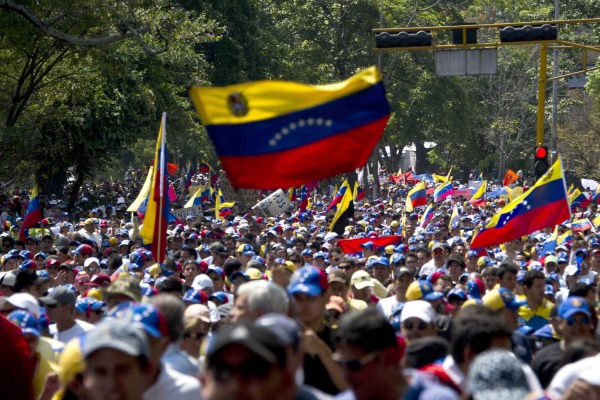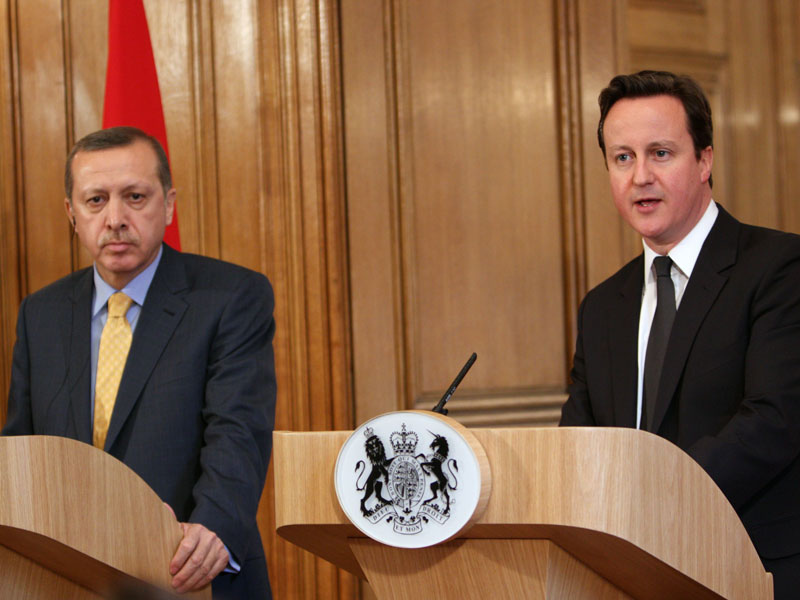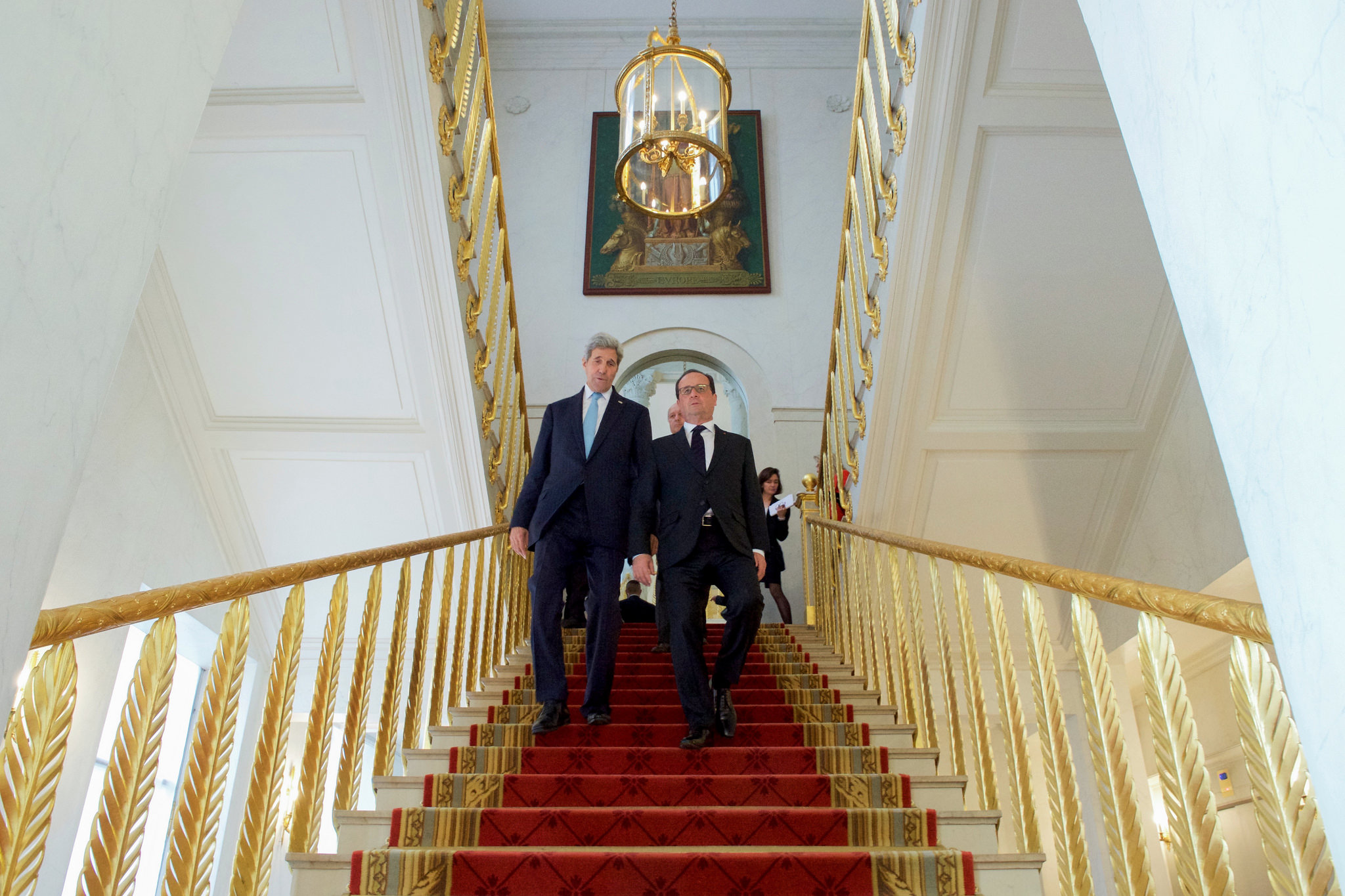Guest post by Gina Lei Miller, Andrew Vonasch, and Ryan Welch.
Food and medicine shortages, hyperinflation, and severe debt all loom large over Venezuelans—those who remain in the country anyway. Over 2 million citizens have fled the country since 2014. Those who cannot or do not wish to leave face yet another challenge to their health and wellbeing: an increasingly authoritarian and repressive government.
In 2017, the world responded to the crisis in Venezuela by withdrawing ties to the regime. The Mercosur trade bloc suspended Venezuela, and the country currently faces expulsion from the Organization of American States (OAS). Both organizations cite anti-democratic policies and human rights abuses as grounds for the country’s suspension and possible expulsion.
International governmental organizations (IGOs) such as Mercosur and the OAS use threats of exclusion to keep members abiding by organizational rules, in this case rules designed to promote democratic values and human rights norms. The rationale behind such policies is that states will be less likely to violate rules of appropriate behavior if they fear losing group membership.
However, this reasoning fails to account for a key psychological factor: states that lose connections to IGOs may subsequently ignore those organizational rules, as they have little reason to continue following the rules as non-members.
In a new study, we find states may indeed be less inclined to follow rules when IGO membership is lost. We use data on human rights practices and lost IGO membership for 143 countries between 1978 and 2012. Multiple statistical models reveal when a country loses IGO membership, human rights abuses increase in the next and subsequent years.
The insight that prompted our investigation came from psychological studies of how individual people behave when excluded from a group. One might expect an excluded individual to ingratiate themselves back into good standing with the group with better behavior. Instead, those excluded are more likely to misbehave. Group norms are most important to people within the group, and those people often follow the rules to stay in good standing with their group. But when those connections are lost, the benefits of compliance are lost as well. Why not break the rules if you’re already an outcast?
In our forthcoming paper, we argue that states (like individuals) are less inclined to follow rules when the social connections that come from group membership are severed, and we expect this trend away from “good” behavior to have important consequences for states’ human rights records. In the case of Venezuela, suspending and possibly expelling the country from Mercosur and the OAS, respectively, may have harmful human rights effects.
State interaction leads to socialization
IGOs help states interact with others in the international community, in part by encouraging international values. These organizations set rules of conduct for members, ranging from procedural matters to substantive issues of governance. For example, the Charter of the Organization of American States notes that member states are obligated to pursue increased per capita national product, stable domestic prices, and equitable systems of taxation and income redistribution (Article 34), among other goals.
Many IGOs, regardless of issue area, set rules of conduct related to states’ human rights practices. For example, the OAS has established the Inter-American Court of Human Rights. Though primarily a trading bloc, Mercosur created a permanent agency called the Institute of Public Policies on Human Rights. Through exposure to other members in these IGOs, states learn what human rights practices are appropriate and what practices are illegitimate. However, when states lose the social connections provided through IGOs, they can no longer access these social cues ideas as readily. Furthermore, lack of information keeps member states from easily monitoring non-members’ actions and offering social rewards and punishments. When a state loses IGO membership and the associated access to social rewards and punishments, compliance with group norms becomes less beneficial. Currently, Venezuela’s government has little incentive to concern itself with Mercosur or OAS rules, or what the members states think about its behavior, given its suspension from both.
If rejection worked, Venezuela would change course
Shortly after suspension from the trade bloc, Mercosur prevented Venezuela’s foreign minister from attending a meeting despite her seemingly desperate attempts to gain access. She later called the suspension “null and void”. Despite Venezuela having signaled its own intent to leave the trade organization prior to the suspension, the foreign minister’s actions suggest that the threat of exclusion does not encourage “pro-social” behavior. If it did, we would expect to see Venezuela’s government addressing the economic and humanitarian crises that have driven 2.3 million people out of the country since 2014 and that have contributed to hyperinflation predicted to reach one million percent by the end of this year. Instead, Venezuela has increased its use of violent repression since 2017.
Venezuela’s post-suspension behavior comports with our finding that states increase repression when they lose membership in IGOs. Our research applies to the international community’s interactions with states like Iran and North Korea. While using isolation to sanction rogue regimes may seem a straightforward way to pressure states to improve human rights practices, it may have the opposite effect.
Our findings also raise concerns about the trend among Western democracies away from participation in IGOs. For example, since 2016, the US has withdrawn from the Paris Climate Agreement, Global Compact on Migration, Joint Comprehensive Plan of Action (a.k.a. the Iran Nuclear Deal), United Nations Economic, Social, and Cultural Organization (UNESCO), and the United Nations Human Rights Council. The UK is currently negotiating its departure from the European Union. If Western liberal democracies want to improve the human rights practices of other states, it is important to continue participating in, developing, and strengthening those institutions in which influence occurs. Citizens in these countries should also hope for their own states’ continued participation and exposure to these values, for their own sake.
Gina Lei Miller is an assistant professor in the Department of History, Sociology, and Political Science at George Fox University whose research focuses on state repression. Andrew Vonasch is a lecturer in the Department of Psychology at the University of Canterbury, New Zealand, whose research focuses on moral psychology. Ryan Welch is an assistant professor in the Department of Political Science and International Studies at the University of Tampa whose research focuses on human rights.







